As the crowds rush outside this time of year to take endless selfies with cherry blossoms and tulips, it may be that we neglect to take in another, lesser-appreciated site of Beijing spring: the city’s lively migrating bird population. Just as the capital’s parks are awash with endless varieties of pink, orange, and yellow flowers, there’s a multitude of wildlife up above to enjoy, if you know where to look.
We hit up the one-man ornithologist behind Birding Beijing, Terry Townshend, to walk us through which birds are gracing Beijing’s skies at the moment as well as where you can get a glimpse.
So grab the family and make your way around Beijing’s parks. Not only will it be fun, but you’ll learn a bit about our precious ecosystem in the process!
Beijing swift (Apus apus pekinensis, 普通楼燕 běijīng yǔyàn)

The Beijing swift has been associated with the capital since it moved in to make its nests in the original city walls in the 1400s. It spends almost all of its life in the air, eating, drinking, and sleeping on the wing, only landing to lay its eggs and feed its young. An incredible traveler, this bird will leave the capital in late July and spend the northern winter in southern Africa before returning the following April, and during that time it will probably remain airborne for nine months!
When? Mid-April until July.
Where? Tiananmen Square, Yonghegong, Summer Palace, Temple of Heaven Park.
Indian cuckoo (Cuculus micropterus, 四声杜鹃 sì shēng dùjuān)
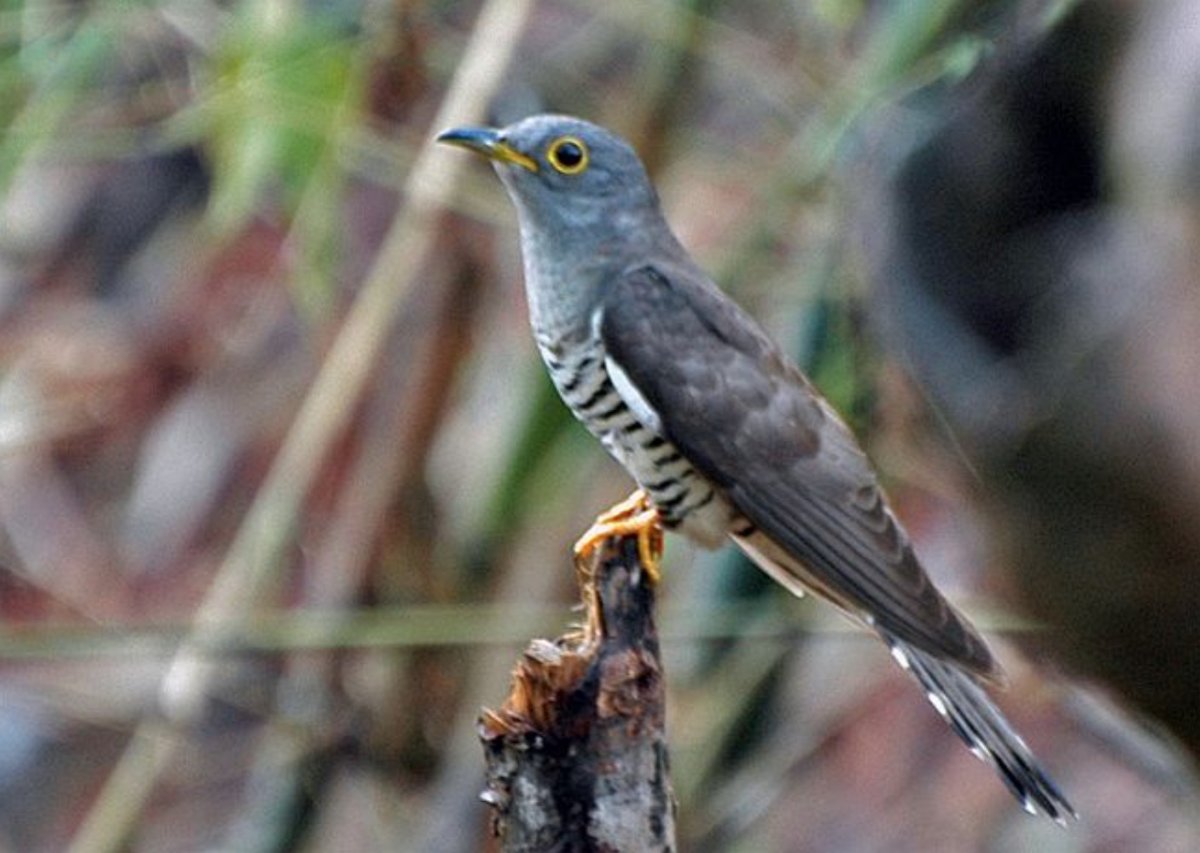
Well known for its four-note song “one more bottle,” this secretive bird arrives in mid-May and sings incessantly, sometimes at night, until departing for South Asia in July or August. In typical cuckoo fashion, it does not make its own nest, but instead lays its eggs in the nests of other birds and leaves the ‘foster parents’ to raise its young. A favorite host is the resident azure-winged magpie.
When? Mid-May until September.
Where? Any urban park or large garden with mature trees. Often sings at night.
White wagtail (Motacilla alba, 白鹡鸰 bái jí líng)
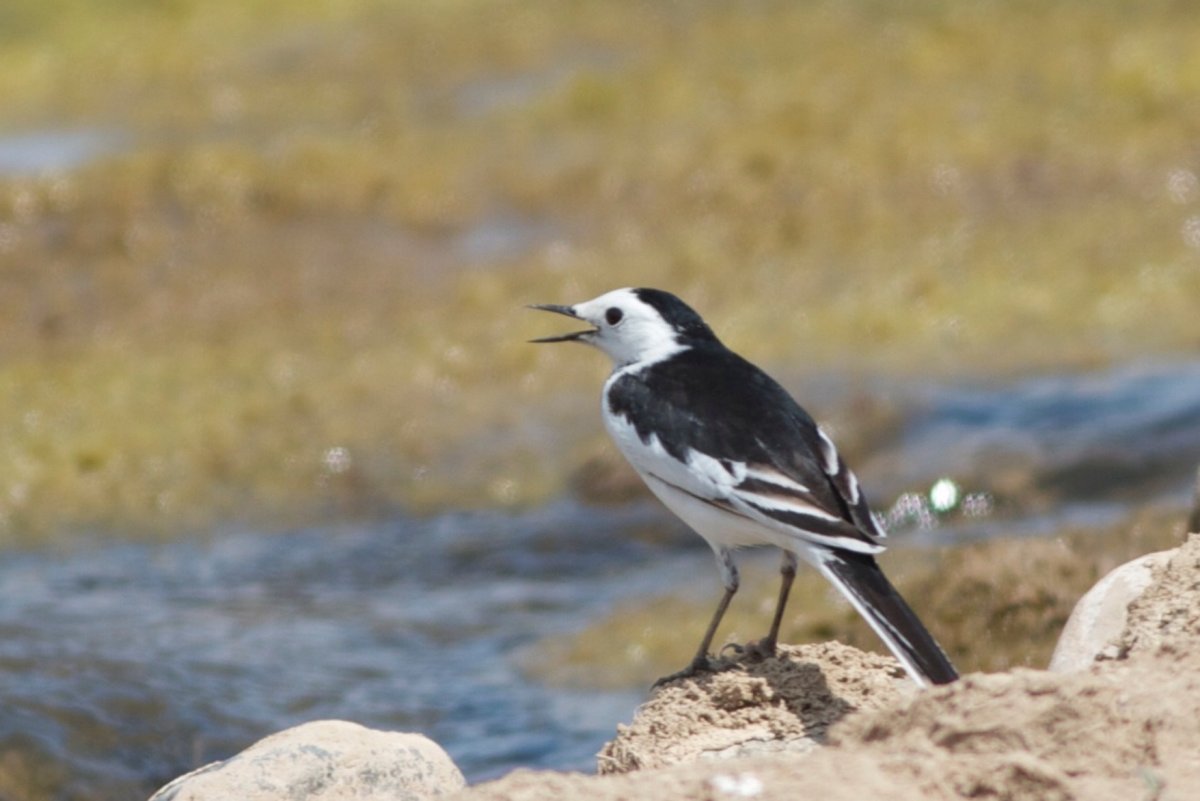
This charismatic bird is often seen running along the ground, wagging its tail furiously as it catches insects. Often associated with water, it is a summer visitor to the capital and has a sparrow-like “chirp” call.
When? Late March and April until September or October.
Where? Anywhere with water, such as park lakes and rivers.
Yellow bittern (Ixobrychus sinensis, 黄苇鳽 huángwěijiān)
The size of a small heron, this secretive bird arrives in late May when its favorite habitat – reedbeds – have grown high enough for them to hide. Often seen perched low down in reeds waiting patiently for an unsuspecting fish to swim too close. Also seen flying low over reeds when commuting from its nest to feeding grounds.
When? Late May to September.
Where? Olympic Forest Park, Agricultural Exhibition Center Park.
Red-flanked bluetail (Tarsiger cyanurus, 红胁蓝尾鸲 hóng xié lán wěi qú)
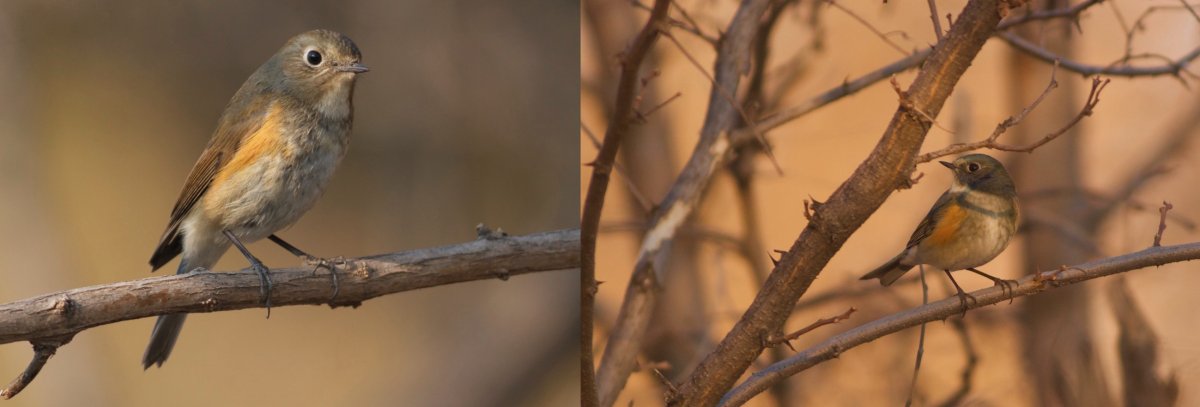
The size of a European robin, this attractive bird is a migrant in Beijing, passing through in April and again in September and October, on its way to and from breeding grounds in Siberia. The males (above left) and females are often seen perching low down in trees and scrubs with regular forays to the ground to catch insects, wagging their tails downwards.
When? April and again in September and October.
Where? Any park or large garden or even residential compounds.
Light-vented bulbul (Pycnonotus sinensis, 白头鹎 báitóu bēi)

A common resident in Beijing in urban areas, but most obvious in spring when it sings and calls frequently. You can usually find the bulbul perched high in trees to feed on fruit, insects, or even nectar from blossoming flowers. The size of a small thrush.
When? All year but especially prominent in March and April.
Where? Any park, garden, or area with shrubs and trees.
Oriental scops owl (Otus sunia, 红角鸮 hóng jué xiāo)
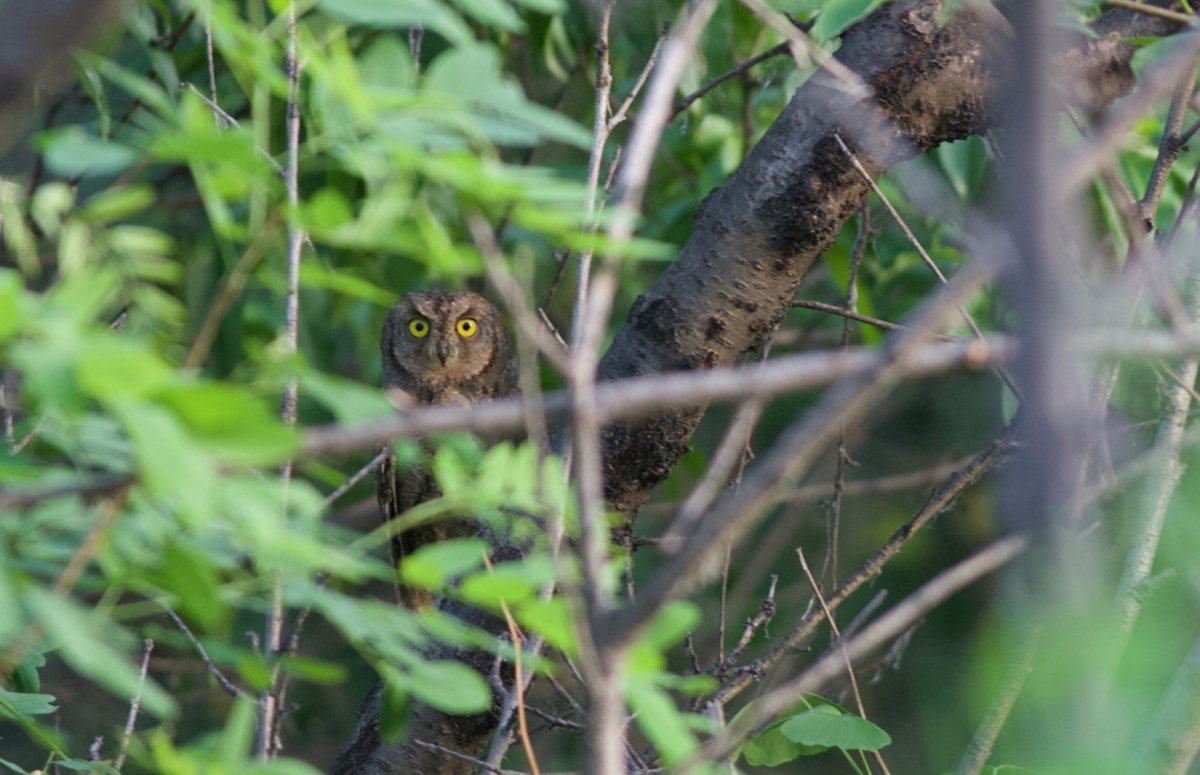
Owls migrate? Yes, this tiny owl arrives in Beijing in mid-April and a few pairs stay to breed in the larger parks and university campuses. Listen for its call at dusk and dawn and, if you are lucky, maybe you can spot one roosting during the day.
When? Mid-April to September.
Where? University campuses or larger parks such as Yuanmingyuan or Summer Palace.
Daurian redstart (Phoenicurus auroreus, 北红尾鸲 běi hóng wěi qú)
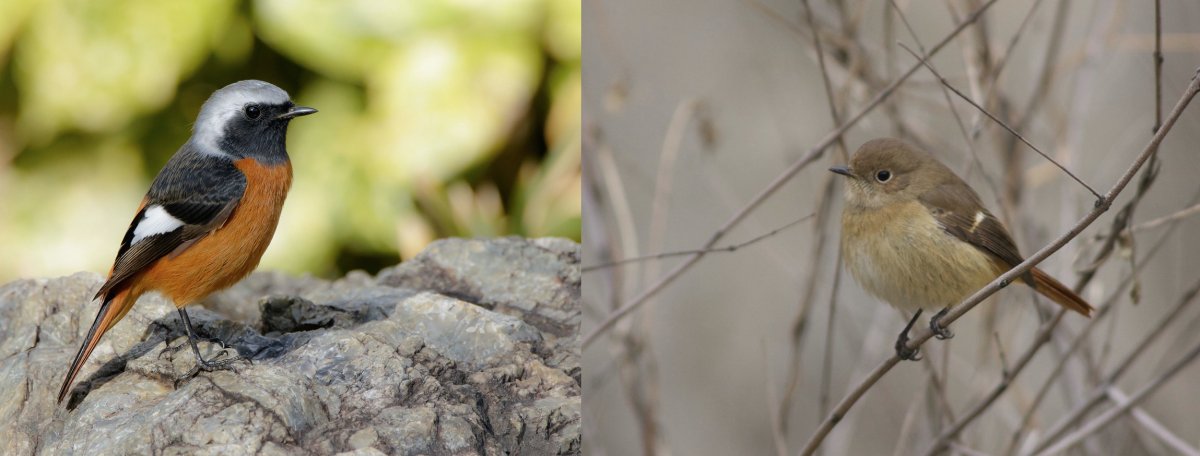
The daurian redstart is a summer visitor that breeds in the hills and mountains around Beijing. They can be seen in parks and gardens in spring and autumn as they make their way to and from their breeding grounds. The male (above left) and female look different but behave in the same way – often perching low in a tree or bush and bouncing down to the ground to collect insects, quivering their tails.
When? April to October, occasionally in winter, too.
Where? Parks, gardens and, in summer, the hills and mountains around Beijing.
You can read more about Beijing’s vast and varied birdlife via Birding Beijing’s website or Twitter feed.
This article originally appeared on our sister site the Beijinger.
Photos: courtesy of Birding Beijing





